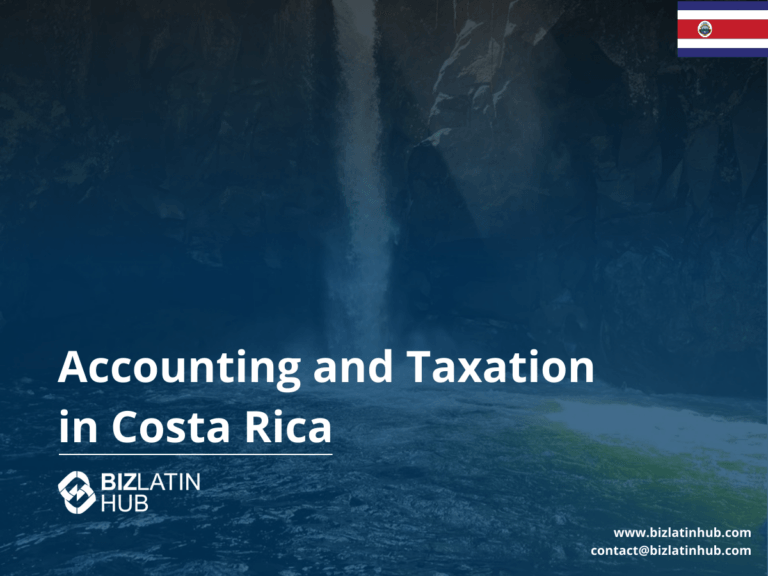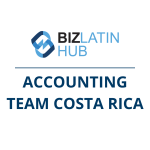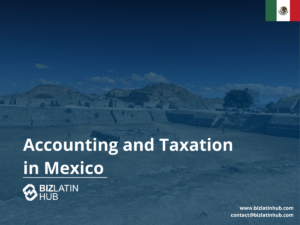Accounting in Costa Rica should be an integral part of your market entry strategy to successfully incorporate a company in Costa Rica and ensure compliance in a complex regulatory environment. This guide offers essential information to help you navigate Costa Rica’s fiscal requirements effectively. Biz Latin Hub can assist in understanding the accounting standards in Costa Rica relevant to your business. Our support extends across the region through a network of local offices throughout Latin America and the Caribbean.
Key Takeaways on Accounting in Costa Rica
| What Are The Accounting Standards in Costa Rica? | Costa Rican accounting standards mandate that companies prepare their financial statements, accounting records, and books in Spanish, following International Financial Reporting Standards (IFRS). |
| What Is The Corporate Tax Rate in Costa Rica? | The corporate tax rate is 30% in Costa Rica. Small companies whose gross income does not exceed 122,145,000 Costa Rican colones are subject to lower tax rates. |
| What Is The Costa Rican Value Added Tax Rate? | The current VAT rate (IVA) is set at 13% in Costa Rica. |
| Dividend Tax Rate in Costa Rica | There is a 15% witholding tax on dividends. |
What are the company accounting requirements in Costa Rica?
The companies accounting requirements in Costa Rica are divided into 2 categories: Corporate obligations and employer obligations.
1. Corporate obligations:
- Keep the accounting and legal books updated.
- Make sure that all information regarding the company is up to date with the Ministry of Finance.
- Complete the registry of transparency and final beneficiaries, which consists of a computer system developed by the Central Bank of Costa Rica, which allows legal entities to provide the information to register their participants.
- Presentation of VAT tax declarations, this is presented monthly in the first 15 calendar days of the following month.
- Presentation of income tax returns, this is presented during the first 15 calendar days of March.
- Keep supporting documents for 5 years.
2. Employer obligations:
- Tax withholding: If a worker’s salary exceeds ¢941,000 (around USD$1,800) monthly, the employer must withhold a percentage of the salary, submit a declaration to the Ministry of Finance, and pay the tax.
- Employee Social Security: An employer must pay social security charges of 26.67% of employee wages and 10.67% on behalf of the worker. Both payments must be completed by the employer, who must withhold the relevant percentage of the worker’s salary. Payment is made monthly.
INS work risk policy: This policy is mandatory payment and aims to protect workers against work risks that they may suffer from the work carried out. The rate for calculating the policy ranges from 0.36% to 9.04% of the total wages reported at the end of the year.
5 Key dates for accounting in Costa Rica:
- Last working day of March (first installment of income tax).
- Last working day of June (second installment of income tax).
- Last working day of September (third installment of income tax).
- 15th December (Final day to present a declaration of income tax).
- 15th of each month (Sales tax).
Note: The main problem that many small and medium companies face in Costa Rica is they often lack an ordered accounting system. According to data from the Public Accountancy College, only 20% of small and medium businesses last more than 3 years, and often these numbers are due to a lack of coordination and accounting support. It is also the major cause of tax evasion cases which costs the government upwards of ₡750 million per year.
What is the tax structure in Costa Rica?
All persons or legal entities must pay an annual tax as established in Law 9024 of the Tax on Legal Persons. The amount of this tax varies according to the type of commercial activity and company income according to the % of the base salary. The current base salary during 2023 is ₡462,200 (approx USD$900).
Non-contributing companies pay a rate of 15% of the base salary, around ₡69,330 (approx. USD$128). The same amount applies to companies registered in the RUT that do not declare income tax.
Accounting requirements in Costa Rica: Taxpaying companies
Companies that do not declare activity declare income at zero or less than 120 base salaries, approximately $102,800. They pay 25% of the base salary (approx. USD$214).
Companies with gross income between 120 and 280 base salaries pay 30% of the base salary (approx. USD$257).
Companies with gross income of more than 280 base salaries pay 50% of the base salary (approx. USD$428).
Newly created companies pay the same amount as ‘non-taxpayer’ companies, the payment is made proportionally to the date of company formation and the rest of the year.
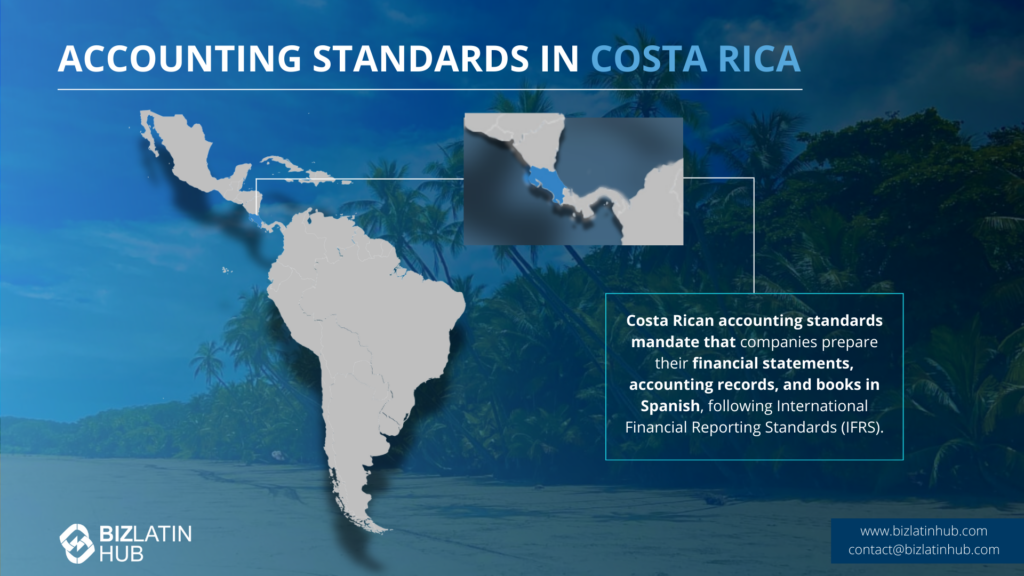
What is the rate of income tax in Costa Rica?
The generating event of the tax on profits is the perception or accrual of income in money or in kind, continuous or occasional, from lucrative activities of Costa Rican source, as well as any other income or benefit of Costa Rican source not exempted by law. Payment of this tax is made in 3 quarterly installments – in June, September, and December. The payment is made by taking an average of the last 3 fiscal periods.
This tax occurs in the tax year beginning on January 1 and ending on December 31 of each year. It is calculated based on gross income and the relevant percentages of your net income:
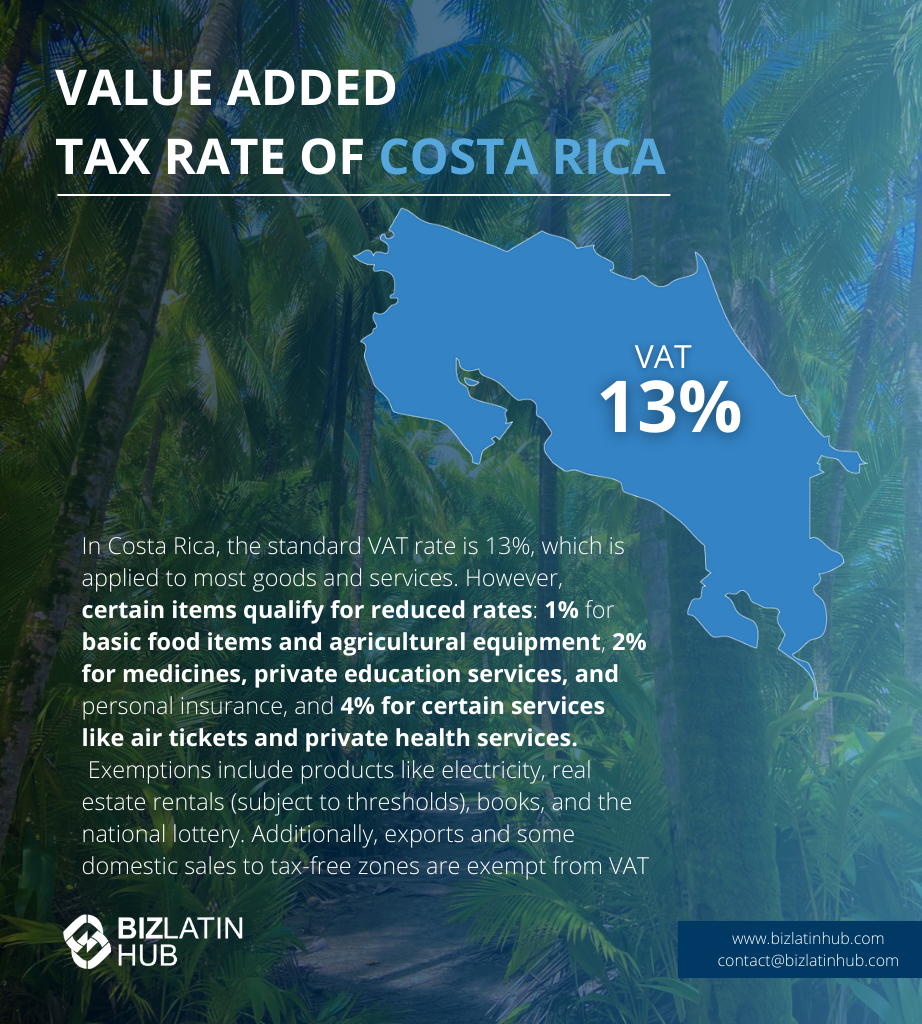
- 5%: The first five million seven hundred sixty-one thousand colones (₡5,761,000) / (USD$10,678) of annual net income.
- 10%: Over the excess of five million seven hundred sixty-one thousand colones (₡5,761,000) / (USD$10,678) and up to eight million six hundred forty-three thousand colons (₡8,643,000) / ($USD16,019) of net income.
- 15%: Over the excess of eight million six hundred forty-three thousand colones (₡8,643,000) / (USD$16,019) and up to eleven million five hundred twenty-four thousand colones (₡11,524,000) / (USD$21,359) of annual net income.
- 20%: On the excess of eleven million five hundred twenty-four thousand colones (₡11,524,000) / (USD$21,359) of annual net income.
- 30%: Legal entities whose gross income exceeds ₡122,145,000,000 / USD$226,383,097, must apply a fixed tax rate.
What is the VAT in Costa Rica?
It is an indirect tax that falls on consumption, which means that when a person (customer) purchases a good or service, they are paying this tax at a general rate of 13% or one of the reduced rates of 4%, 2%, 1% or 0.5% that applies to certain exemptions.
What is the general sales tax in Costa Rica?
Any company that sells goods or provides regular services must pay this tax once a month. The tax rate is 13% for the provision of any service or good.
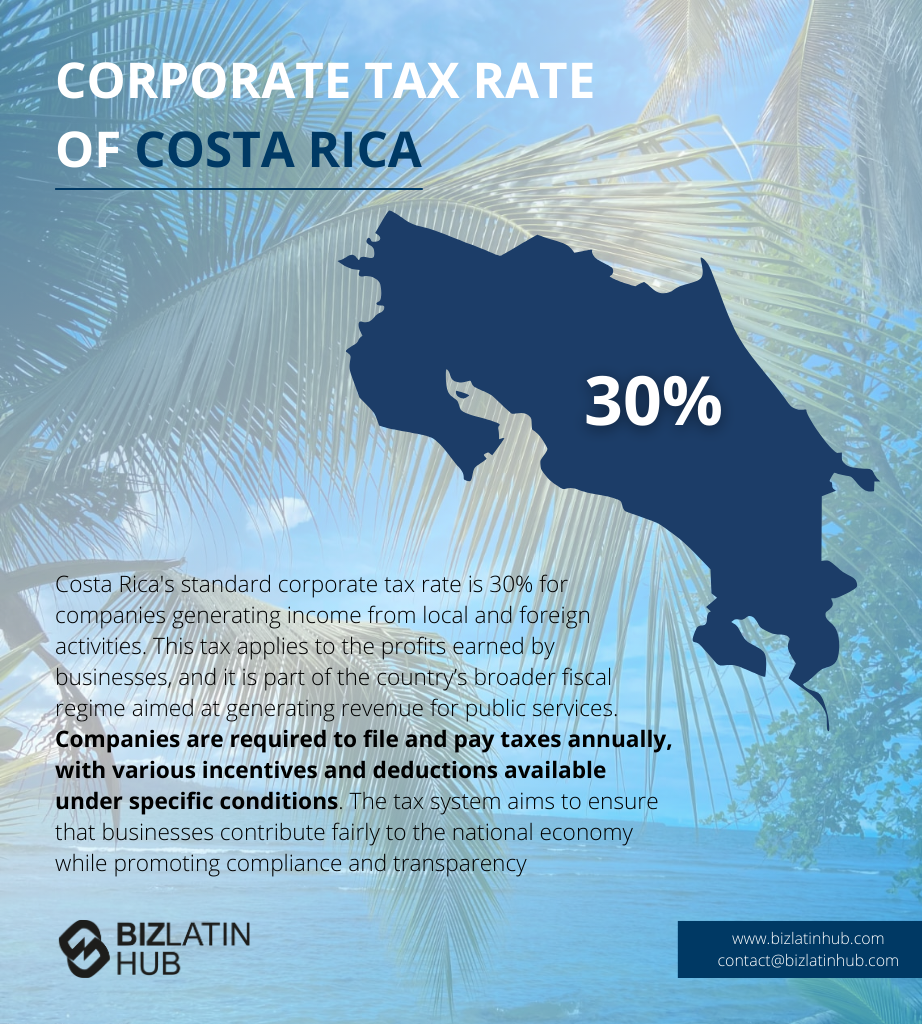
FAQs about accounting in Costa Rica
Based on our extensive experience these are the common questions and doubts from our clients when looking to understand accounting and taxation in Costa Rica.
1. What is the corporate tax rate in Costa Rica?
Corporate Tax rate in Costa Rica is 30%.
2. How are businesses taxed in Costa Rica?
Businesses in Costa Rica are taxed according to the IFRS, which works on the basis of paying tax on the difference between revenue minus deductible expenses.
3. What is the Internal Revenue Service (IRS) called in Costa Rica?
The IRS in Costa Rica is called the Ministerio de Hacienda and it is responsible for implementing the fiscal and customs legislation in Costa Rica.
4. What is the accounting standard in Costa Rica?
Costarican accounting standards require companies to prepare their financial statements, accounting registries and books of account in Spanish and in accordance to International Financial Reporting Standards.
5. What is the CPA equivalent in Costa Rica?
The equivalent of a CPA in Costa Rica is a certified public accountant (Contador Publico Autorizado—CPA).
6. Does Costa Rica report in IFRS?
All listed companies must follow IFRS Standards.
Why Invest is Costa Rica?
Costa Rica stands out as an attractive destination for investment, thanks to its political stability, sustainable development model, and strategic location in Central America. Renowned for its leadership in ecotourism and renewable energy, the country also offers opportunities in technology, agriculture, and advanced manufacturing. Its position as a link between North and South America strengthens its role in global trade networks.
Pro-business policies, free trade agreements, and a skilled, bilingual workforce make Costa Rica an ideal choice for foreign investors. The government’s focus on innovation, sustainability, and high-value exports, such as medical devices and specialty coffee, further enhances its appeal. With competitive operating costs and access to key global markets, Costa Rica is well-positioned for business growth and long-term investment.
Get support with accounting requirements in Costa Rica
To start a company in Costa Rica, you need the support of a qualified account and tax specialist from the outset. A well-thought-out business plan will not be able to evolve if your business does not remain in good standing with the local Costa Rican authorities.
Biz Latin Hub can assist you with all accounting, taxation, and financial matters. Our specialist team has a comprehensive understanding of local laws and complications in the Costa Rican business environment and is well-equipped to work with foreign companies looking to conduct commercial activity in the region.
To learn more about the accounting requirements in Costa Rica, the business opportunities to form a company, and how you might take advantage of this market, please contact us today.
Interested in hiring local staff in Latin America? See how we can support a local company formation or a tailored PEO solution.

